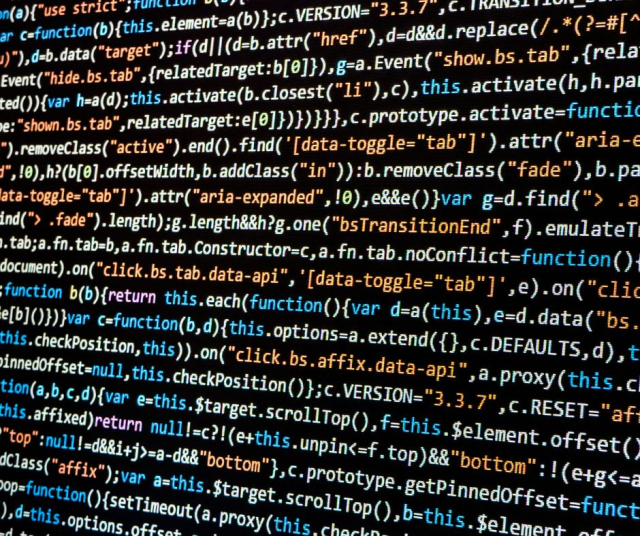In the digital age we live in, the amount of data generated daily is exponential. From interactions on social networks to financial transactions, including information collected by IoT (Internet of Things) devices, every action generates data. This massive phenomenon of data generation has given rise to the term "Big Data", an expression that encapsulates the management and analysis of large volumes of data to extract valuable information and significant knowledge.
The term "Big Data" has emerged as a response to the avalanche of information that characterizes the digital age. It's more than just a massive amount of data; It implies a new way of conceiving, managing and extracting value from information in an interconnected and digitalized world. At its core, Big Data represents extremely large and complex data sets that push the limits of traditional data processing and analysis tools.
The term "Big Data" does not only refer to the volume of data, although this is a crucial component. Characterizing data in terms of volume speaks to the magnitude of the information available, which can be so vast that it spans from terabytes to zettabytes of data. This massive amount of data comes from various sources such as social media, mobile devices, financial transactions, medical records, IoT sensors, and more. This unprecedented volume of information is what gives rise to the storage, management and processing challenge that characterizes Big Data.
The "3 Vs" of Big Data
To better understand the concept of Big Data, it is useful to refer to the "3 Vs" that define it:
Volume: Refers to the massive amount of data constantly generated and collected. This data can come from various sources, such as social networks, financial transactions, IoT sensors, medical records, among others.
Variety: Data can be of different types and formats, such as text, images, audio, video, geospatial data, etc. This diversity of data poses additional challenges for its storage, processing and analysis.
Speed: Big Data is generated at an impressive speed. Data flows continuously and must be processed and analyzed in real time to obtain valuable information and make quick decisions.
The importance of Big Data
Big Data is not just an abstract concept or a passing trend; It represents a revolution in the way organizations and societies manage, understand and use information in the digital age. Its importance lies in its ability to transform seemingly chaotic data into valuable and insightful knowledge that drives informed and strategic decision-making across a wide range of industries and fields.
At the heart of the importance of Big Data is its ability to provide valuable information that was previously inaccessible or difficult to obtain. By leveraging large volumes of data, organizations can better understand their customers, identify emerging trends, predict future behavior, and improve operational efficiency. This deeper understanding of the market and business environment allows companies to adapt more quickly to changes and make more informed and strategic decisions.
In the healthcare sector, for example, Big Data is used to analyze large sets of medical data, such as patient records and test results, to identify patterns and trends that can lead to more accurate diagnoses, personalized treatments, and better patient care. In e-commerce, companies use Big Data to understand customer purchasing behavior, offer personalized product recommendations, and optimize prices to maximize sales and customer satisfaction.
Big Data Applications
Healthcare: In the healthcare sector, Big Data is used to analyze large volumes of medical data, such as patient records, medical images, and test results. This allows healthcare professionals to identify patterns, predict disease outbreaks, personalize treatments, and improve patient care.
E-commerce: E-commerce companies use Big Data to analyze customer purchasing behavior, recommend personalized products, optimize prices, and prevent fraud.
Finance: In the financial sector, Big Data is used to detect fraud patterns, predict financial risks, optimize investment portfolios, and personalize financial product offerings.
Transportation and logistics: Transportation and logistics companies use Big Data to optimize delivery routes, manage inventories, predict demand and improve operational efficiency.
Scientific research: Scientists use Big Data to analyze data generated by scientific instruments, such as telescopes and particle accelerators, to make important discoveries in fields such as astronomy, biology, and particle physics.
Big Data Challenges
Despite its many benefits, Big Data also presents significant challenges that must be addressed to realize its full potential. Some of these challenges include:
Privacy and security: Handling large amounts of data raises concerns about the privacy and security of personal information. It is essential to ensure that data is stored and processed securely and that data privacy regulations, such as the General Data Protection Regulation (GDPR) in the European Union, are complied with.
Data quality : As the amount of data increases, so does the risk of inaccurate, incomplete, or irrelevant data. It is crucial to implement measures to ensure data quality and avoid erroneous decisions based on incorrect information.
Infrastructure and resources: Processing and analyzing large volumes of data requires robust computing infrastructure and adequate resources, such as storage and processing power. This can be expensive and requires careful planning.
Analytical capabilities: The ability to extract valuable insights from data depends largely on the analytical skills and tools available. It is essential to have trained personnel and use advanced data analysis tools, such as machine learning algorithms and artificial intelligence.
Big Data will continue to play a fundamental role in the digital economy of the future. As technology continues to advance, the amount and complexity of data is expected to continue to increase, requiring innovative approaches to its management and analysis. Furthermore, Big Data is expected to continue transforming various industries and aspects of daily life, from healthcare to transportation and education.
